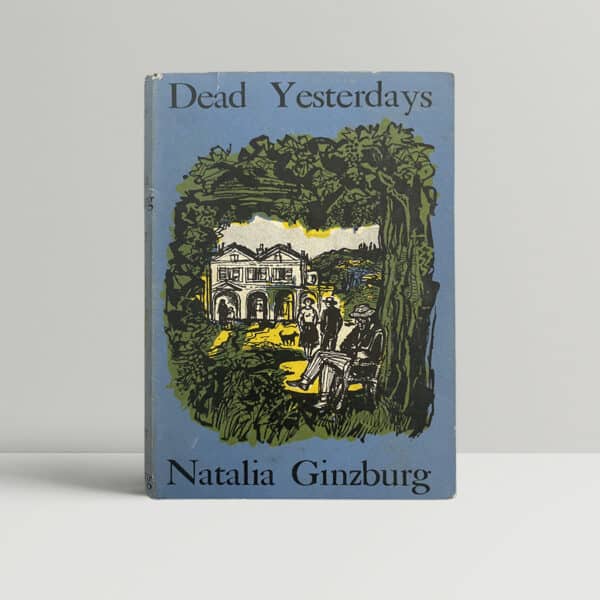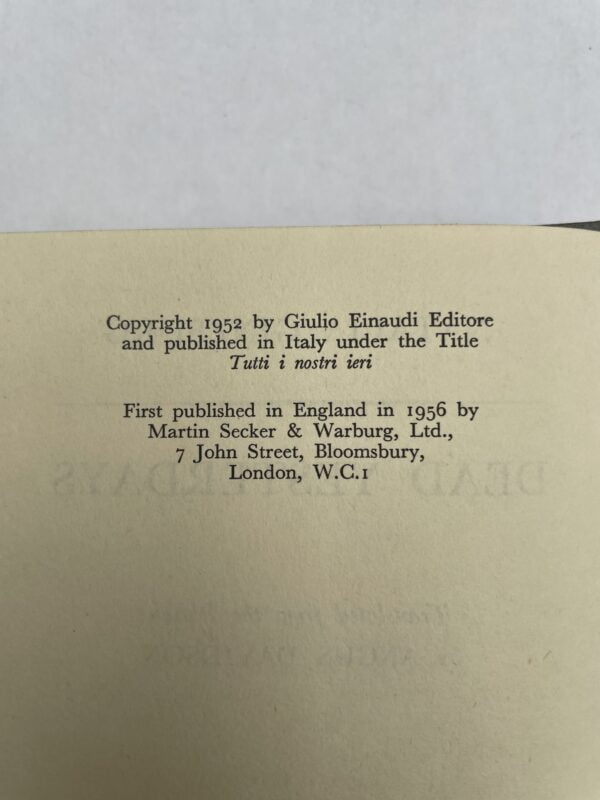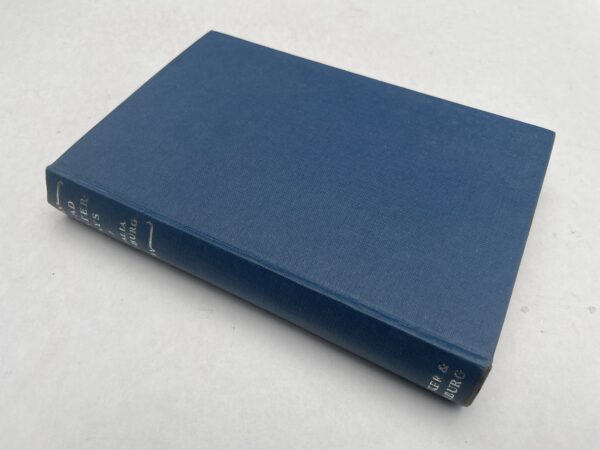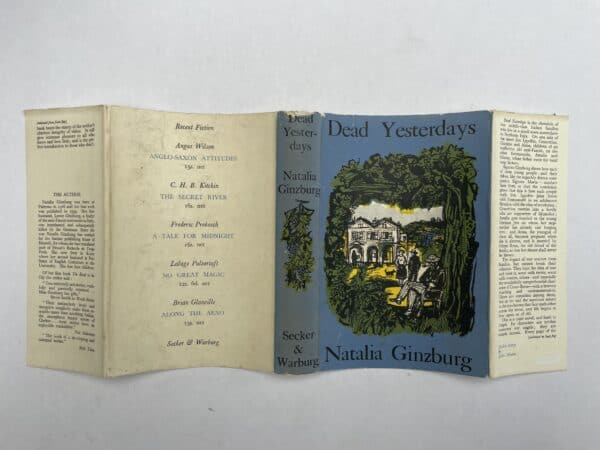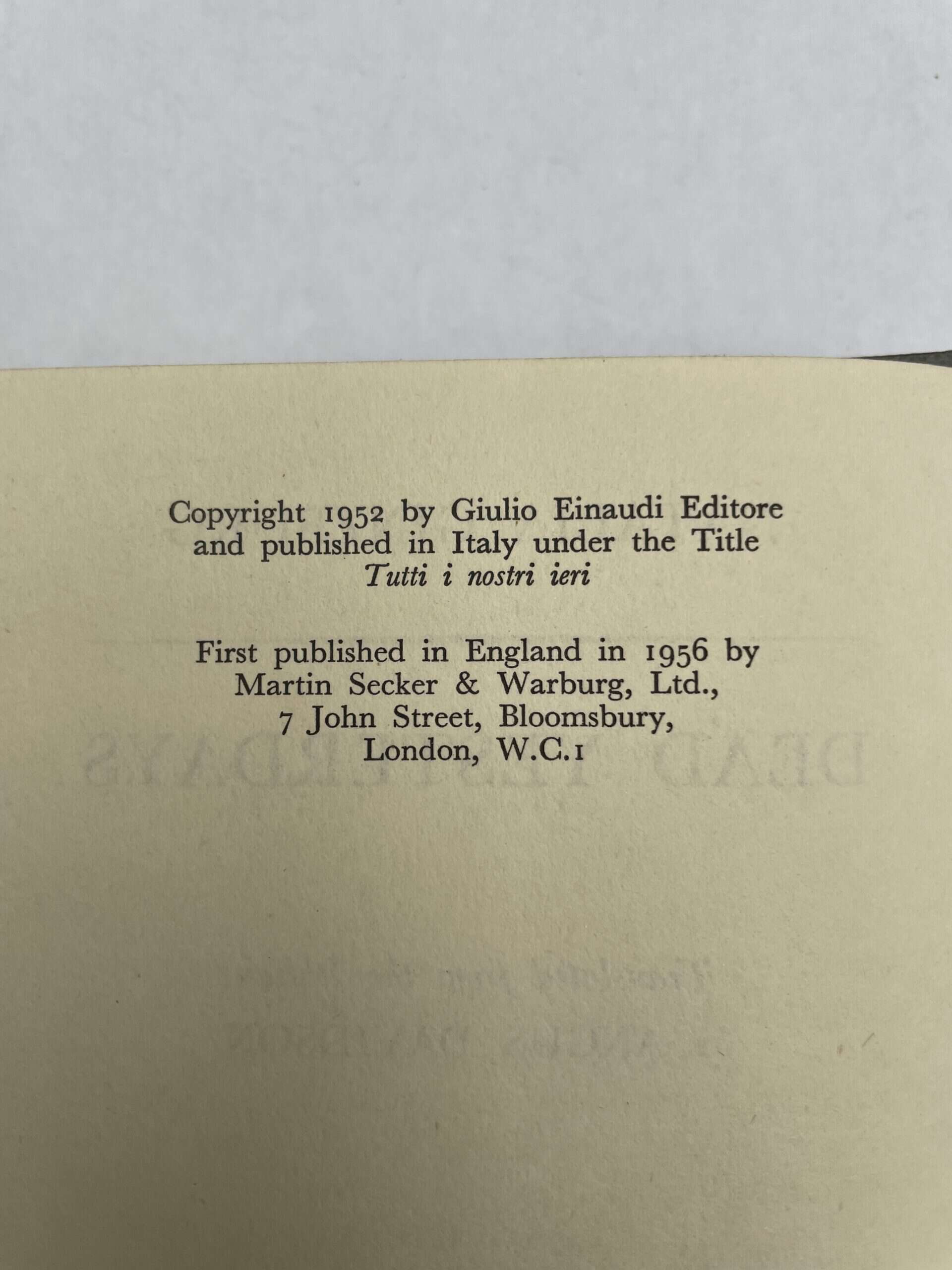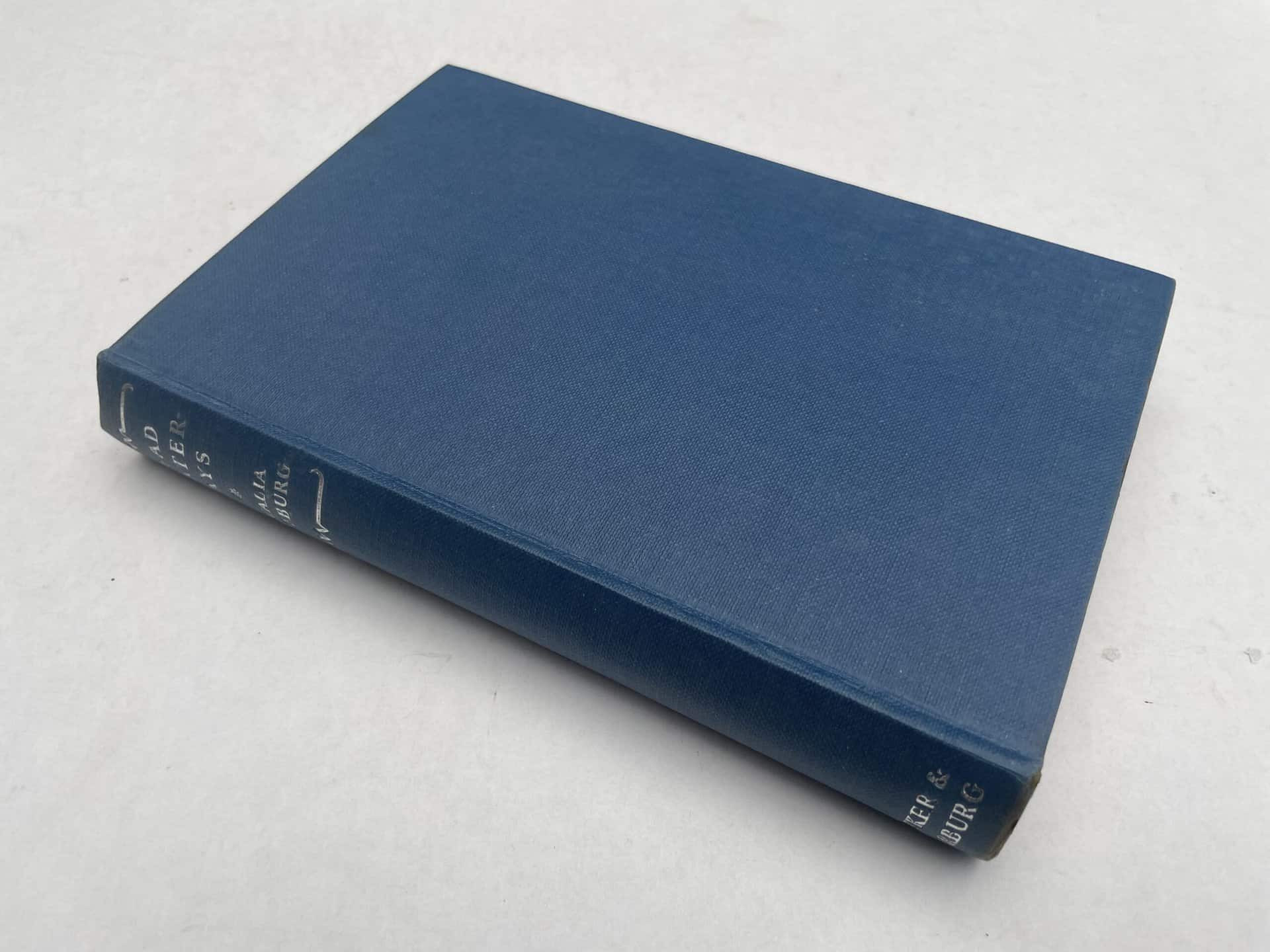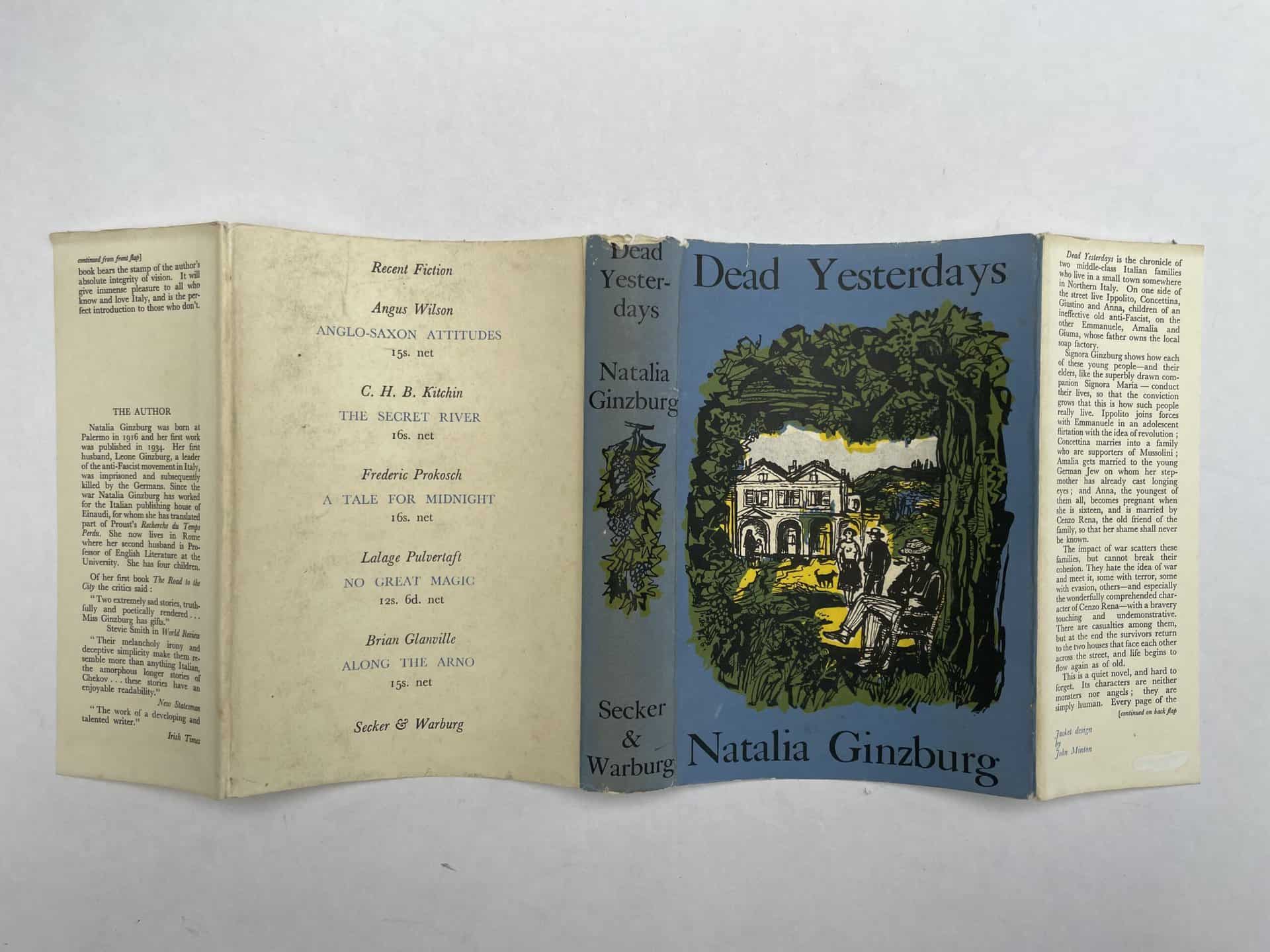We're now open Sundays from 10am - 4pm
Natalia Ginzburg – Dead Yesterdays – First Edition 1956
£95.00
A first edition, first printing, published by Secker and Warburg in 1956. A near fine book, with internals free from inscriptions and text blocks bright and crisp, with some application of correction fluid to the front pastdown and front free end paper. In a near fine unclipped wrapper designed by John Minton, showing some minor wear to the head of the spine and slight pushing to the base, with a neat tear to the top of the front panel, the price obscured by correction fluid.
Dead Yesterdays explores the complexities of memory and loss. Through vivid prose, Ginzburg delves into the fragmented recollections of the past, capturing the essence of bygone days and the emotions they evoke. She weaves a narrative that navigates the intertwined threads of personal history and collective experience, reflecting on the inevitability of change and the enduring impact of memory on the present. Ginzburg’s poignant reflections offer readers a profound meditation on the passage of time.
(We don't keep all of our stock in the shop, so send us an email if you're planning a trip to see a particular author or book.)
- Description
Description
A first edition, first printing, published by Secker and Warburg in 1956. A near fine book, with internals free from inscriptions and text blocks bright and crisp, with some application of correction fluid to the front pastdown and front free end paper. In a near fine unclipped wrapper designed by John Minton, showing some minor wear to the head of the spine and slight pushing to the base, with a neat tear to the top of the front panel, the price obscured by correction fluid.
Dead Yesterdays explores the complexities of memory and loss. Through vivid prose, Ginzburg delves into the fragmented recollections of the past, capturing the essence of bygone days and the emotions they evoke. She weaves a narrative that navigates the intertwined threads of personal history and collective experience, reflecting on the inevitability of change and the enduring impact of memory on the present. Ginzburg’s poignant reflections offer readers a profound meditation on the passage of time.

